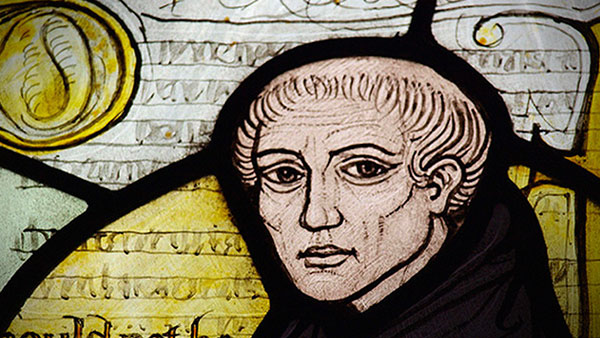
also Correlation does not imply causation). Hence, Aquinas acknowledges the principle that today is known as Occam's razor, but prefers causal explanations to other simple explanations (cf. quinque viae), and specifically, through an argument based on causality. The Summa Theologica of Thomas Aquinas (1225–1274) states that "it is superfluous to suppose that what can be accounted for by a few principles has been produced by many." Aquinas uses this principle to construct an objection to God's existence, an objection that he in turn answers and refutes generally (cf. Similarly in natural science, in moral science, and in metaphysics the best is that which needs no premises and the better that which needs the fewer, other circumstances being equal." For if one thing were demonstrated from many and another thing from fewer equally known premises, clearly that is better which is from fewer because it makes us know quickly, just as a universal demonstration is better than particular because it produces knowledge from fewer premises.

1217–1220), declares: "That is better and more valuable which requires fewer, other circumstances being equal.

Robert Grosseteste, in Commentary on the Posterior Analytics Books ( Commentarius in Posteriorum Analyticorum Libros) (c. Phrases such as "It is vain to do with more what can be done with fewer" and "A plurality is not to be posited without necessity" were commonplace in 13th-century scholastic writing. 168) stated, "We consider it a good principle to explain the phenomena by the simplest hypothesis possible." Aristotle writes in his Posterior Analytics, "We may assume the superiority ceteris paribus of the demonstration which derives from fewer postulates or hypotheses." Ptolemy ( c. The origins of what has come to be known as Occam's razor are traceable to the works of earlier philosophers such as John Duns Scotus (1265–1308), Robert Grosseteste (1175–1253), Maimonides (Moses ben-Maimon, 1138–1204), and even Aristotle (384–322 BC). Part of a page from John Duns Scotus's book Commentaria oxoniensia ad IV libros magistri Sententiarus, showing the words: " Pluralitas non est ponenda sine necessitate", i.e., "Plurality is not to be posited without necessity" Ockham stated the principle in various ways, but the most popular version, "Entities are not to be multiplied without necessity" ( Non sunt multiplicanda entia sine necessitate) was formulated by the Irish Franciscan philosopher John Punch in his 1639 commentary on the works of Duns Scotus. Ockham did not invent this principle, but the "razor"-and its association with him-may be due to the frequency and effectiveness with which he used it. Libert Froidmont, in his On Christian Philosophy of the Soul, takes credit for the phrase, speaking of " novacula occami". The phrase Occam's razor did not appear until a few centuries after William of Ockham's death in 1347. Since failing explanations can always be burdened with ad hoc hypotheses to prevent them from being falsified, simpler theories are preferable to more complex ones because they tend to be more testable. For each accepted explanation of a phenomenon, there may be an extremely large, perhaps even incomprehensible, number of possible and more complex alternatives. In the scientific method, Occam's razor is not considered an irrefutable principle of logic or a scientific result the preference for simplicity in the scientific method is based on the falsifiability criterion. Similarly, in science, Occam's razor is used as an abductive heuristic in the development of theoretical models rather than as a rigorous arbiter between candidate models.

This philosophical razor advocates that when presented with competing hypotheses about the same prediction, one should prefer the one that requires fewest assumptions, and that this is not meant to be a way of choosing between hypotheses that make different predictions. Popularly, the principle is sometimes inaccurately paraphrased as "The simplest explanation is usually the best one." Attributed to William of Ockham, a 14th-century English philosopher and theologian, it is frequently cited as Entia non sunt multiplicanda praeter necessitatem, which translates as "Entities must not be multiplied beyond necessity", although Occam never used these exact words. It is also known as the principle of parsimony or the law of parsimony ( Latin: lex parsimoniae). Occam's razor, Ockham's razor, or Ocham's razor ( Latin: novacula Occami) in philosophy is the problem-solving principle that recommends searching for explanations constructed with the smallest possible set of elements. For the Australian radio program, see Radio National. For the aerial theatre company, see Ockham's Razor Theatre Company.


 0 kommentar(er)
0 kommentar(er)
